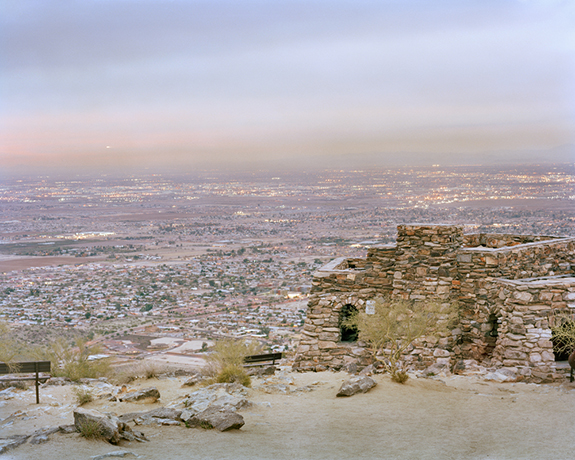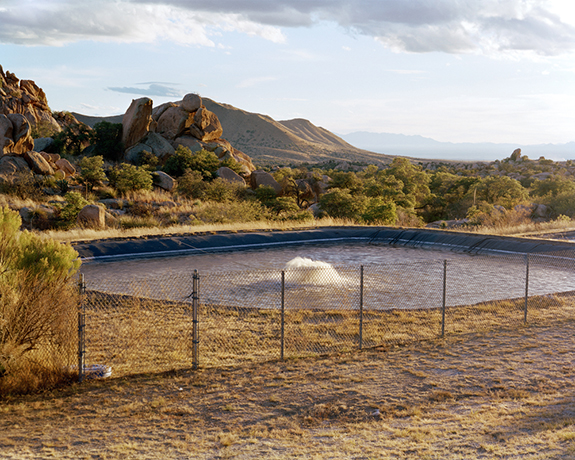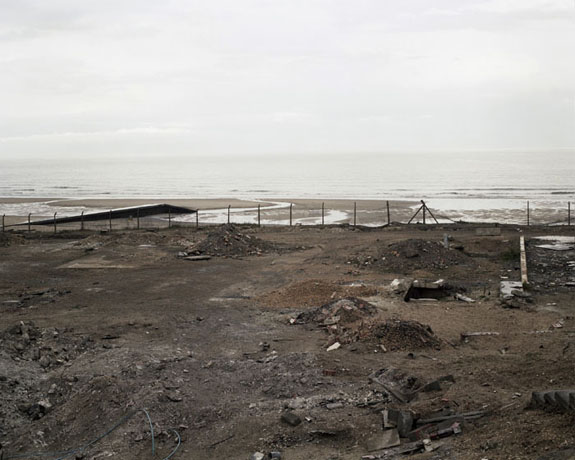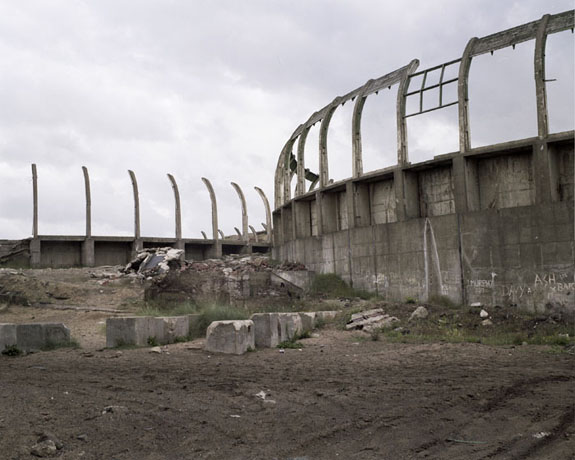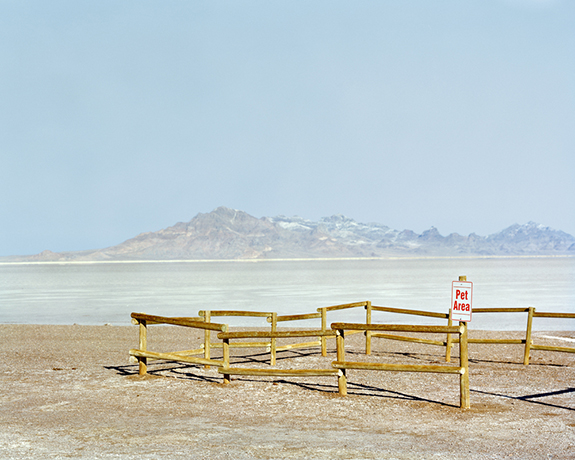
At Passages, a dream set in the United States, investigates the pre-conscious human relationship to the landscape, as well as the evolution of the Romantic sublime, now a memory, transformed beyond recognition. Investigating the tension between the collective memory of the terrifying Romantic sublime, the sense of possibility in late 19th-century landscape photography, and the displaced sublime of America today, the work looks at those passages between the observer and the landscape-subject that open new sanctuaries, that stand in opposition to our previous ones. In exploring the balance between memory and the reconfigured sublime — the dialectic between the residual landscape of memory and the actual landscape — At Passages interrogates American mythologies of landscape, and conceives new pathways, with reimagined sacred spaces. In this crisis period of human history, our relationship with the landscape is at a crossroads which traverses the social, cultural, and political. Therefore, the work strives to portray landscape in an atypical way, with invented stories, new myths, about America in the 21st century. Through those reinvented mythologies and exposed idiosyncrasies, the work invites dialogue about the environments, the landscapes, that surround us. At Passages explores nature’s becoming, our society’s transformation of it, its passage from a relatively pristine state of apprehension into a more complex and problematic one.
— Sarah Palmer, Brooklyn, New York, USA
